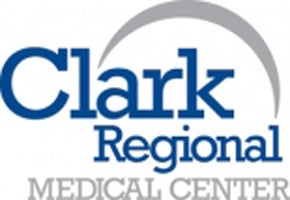Closer Look: CRMC aims to provide quality, local cancer treatment
Published 5:58 pm Saturday, June 16, 2018
For two years, Larry Pasley has made the trip just about every eight weeks — sometimes more — to the third floor of Clark Regional Medical Center to receive treatment in its Center for Infusion Services.
Thankfully, the trip isn’t long for Pasley, a Clark County resident.
Getting local treatment has made the world of difference to him, he said.
“They (CRMC) treat you good here,” Pasley said.
Of the 244 patients from Clark County diagnosed with cancer in 2014, the CRMC diagnosed and treated only a quarter of those patients.
Deanna Wells, CRMC’s cancer program administrator, said the hospital is actively working to improve those numbers to provide treatment to cancer patients closer to their home.
Cancer in Clark
CRMC identified breast, lung, colon, prostate and bladder cancer as the top five cancers affecting Clark County in 2016.
According to the Kentucky Cancer Registry data, CRMC diagnosed 145 cancer cases in 2015 and was on track to diagnose about 175 cancer cases in 2017.
Cancer kills 10,000 people a year in Kentucky. Lung cancer kills Kentuckians at rates 50 percent higher than the national average. Kentucky also has high death rates — also rank in the top 10 nationally for breast, colorectal and cervical cancers, according to the CDC.
Breast cancer is the top diagnosis in the state.
Emphasis on quality care
CRMC recently released its 2017 “Oncology Public Reporting of Outcomes,” which highlights the quality care CRMC is working to provide.
The cancer committee is a group of doctors, nurses and other professionals who ensure quality care is a continued focus. The committee also assures CRMC is following the Commission on Cancer standards.
In June 2017, CRMC was surveyed by the American College of Surgeons Commission on Cancer.
The Commission on Cancer is a group of organizations dedicated to improving survival and quality of life for cancer patients through standards set to promote cancer prevention, research, education and monitoring of comprehensive quality care.
CRMC received a bronze level accreditation without noted deficiencies.
Every three years, the Cancer Committee and the program will be surveyed to continue this level of excellence, Wells said.
The Center for Infusion Services delivers comprehensive chemotherapy care and is connected to the oncologist’s office so he can monitor each patient.
CRMC provides a team of specially-trained physicians and nurses to help patients manage a cancer diagnosis and return to good health.
Located in the Clark Clinic building, the facilities in the Center for Infusion Services include a private suite with comfortable recliner and TV, a semi-private suite with recliners and TVs and a procedure room for bone marrow biopsies and other procedures.
Sarah Alexander, CRMC’s marketing director, said a local artist even painted an ocean view for the patients which they can see through the window while receiving treatment.
CRMC’s highly-trained team of registered nurses ensures its patients receive the adequately prescribed dosage of your medicine as scheduled.
Patient navigators are also available to patients so they are not alone in the process, Wells said. Patient navigators guide patients as they move through the healthcare system and may have professional medical, legal, financial or administrative experience.
Wells said team members are friendly, compassionate and committed to assisting patients on their personalized journey to wellness.
“We are honed in on every patient,” she said. “They don’t become a number. They get personalized treatment.”
She said CRMC wants patients to feel safe and comfortable throughout the infusion process.
“As a small cancer center, it’s important we have that personal touch,” Wells said.
When patients ring the bell placed on the wall of the infusion center, it indicates the end of their treatment and a significant — often emotional — milestone in their journey.
Collaboration
is power
CRMC is also a part of the University of Kentucky Markey Center Affiliate Network (MCCAN) The MCCAN assists doctors, nurses, pharmacists and other medical staff at local hospitals when patients need care that is not available locally.
Wells said some of the benefits include access to specializing programs such as genetic counseling, access to the latest, most up-to-date treatments, minimal travel time and more.
Being a Markey affiliate also gives them resources to participate in and provide community education events.
Wells said the 2018 Community Health Fair, CRMC staff handed out about 30 FIT tests which are a screening test for colon cancer that can be administered by the patient in their home. It tests for hidden blood in the stool which can be an early sign of cancer. Of those tests, there have been four confirmed positives they should go through additional testing with a physician.
“The public affiliation with Makey is great not just for us, but for the community,” Wells said.
Early detection is key
The sooner a patient can be diagnosed, the better, Wells said.
Most insurances cover screenings, Alexander said. If someone doesn’t have a primary care doctor and wants to have a screening, they can call 888-847-DOCS (3627).
According to the American Cancer Society, women age 45 to 54 should get mammograms every year. Women 55 and older should switch to mammograms every two years or can continue yearly screening.
As of May 30, the recommended age for colon cancer screenings has lowered because of the increase in colon cancer diagnosis in younger patients. For people at average risk for colorectal cancer, the American Cancer Society recommends starting regular screening at age 45. Screenings can be done either with a sensitive test that looks for signs of cancer in a person’s stool (a stool-based test) or with an exam that looks at the colon and rectum (a visual exam).
Cervical cancer testing should start at age 21.
The American Cancer Society recommends yearly lung cancer screening with a low-dose CT scan (LDCT) for people at higher risk for lung cancer who meet the following conditions:
are aged 55 to 74 years, and in reasonably good health, currently, smoke or have quit smoking in the past 15 years and have at least a 30 pack-year smoking history.
A pack-year is one pack of cigarettes per day per year. One pack per day for 30 years or two packs per day for 15 years would both be 30 pack-years.
Wells said about 29 percent of Clark County’s population are smokers.
To reduce the risk of cancer, the American Cancer Society recommends people stay away from all forms of tobacco, maintain a healthy weight, stay active, eat healthy, limit alcohol consumption, protect the skin, know family’s medical history and get regular check-ups and cancer screening tests.
Closer is better
The goal is to win the war on cancer right here at home in Clark County.
Wells said in the past, patients in Winchester and surrounding communities have had to travel long distances to see an oncologist and receive chemotherapy treatments.
CRMC’s oncology team and Center for Infusion Services change that for the better, she said.
Now cancer patients can receive advanced treatments and compassionate support close to home.
“We can diagnose them here in their hometown, and we can provide the treatment,” Wells said.







